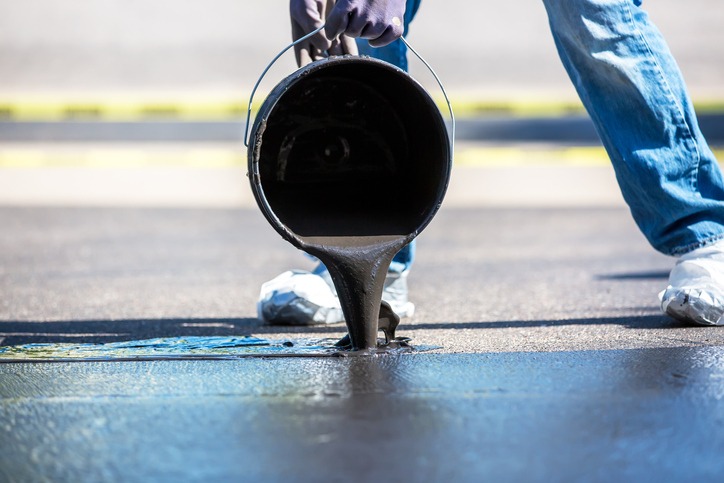Asphalt driveways have become a popular choice due to their durability and low-maintenance requirements. However, one of the biggest risks to asphalt driveways is moisture, which can cause damage and weaken the structure of the driveway. As such, it’s important to take the necessary steps to protect your asphalt driveway from moisture-related damage, so you can avoid the costly price of acquiring repairs from an asphalt paving company near you.
Learn more about the basics of asphalt and how to protect it from moisture-related damage.
What is asphalt, and how does it protect against moisture?
Asphalt is a type of pavement material made up of a mix of aggregates, bitumen, and water. It’s commonly used for roads, parking lots, and driveways due to its durability and low-maintenance requirements. Asphalt is able to protect against moisture due to its impermeability, meaning it’s able to resist the penetration of water and other liquids. This makes asphalt an ideal choice for driveways, as it’s able to protect the underlying material from damage caused by moisture.
Despite its impermeability, asphalt can still be susceptible to moisture-related damage if proper care isn’t taken. Therefore, it’s important to understand how to identify signs of moisture-related damage and how to prevent it.
How to identify signs of moisture-related damage on your asphalt driveway
The first step in protecting your asphalt driveway from moisture-related damage is to be able to identify the signs of such damage. Common signs of moisture-related damage include cracks, potholes, depressions, and uneven surfaces. These signs are typically caused by water seeping through the asphalt and eroding the underlying material. Additionally, you may also notice areas of discoloration, which can indicate the presence of moisture beneath the surface.
Common causes of moisture-related damage to asphalt driveways
Once you’ve identified the signs of moisture-related damage on your asphalt driveway, it’s important to understand what could be causing it. The most common cause of moisture-related damage to asphalt driveways is inadequate drainage. If the driveway is not properly graded, water can pool in certain areas and cause damage. Additionally, the presence of tree roots can also contribute to moisture-related damage, as they can lift the pavement and create cracks. Finally, the use of de-icing chemicals can also cause damage to asphalt driveways, as it can break down the surface and erode the underlying material.
How to prevent moisture-related damage to asphalt driveways
The best way to prevent moisture-related damage to asphalt driveways is to ensure proper drainage. You should also inspect your driveway regularly for any signs of damage or wear and tear. More so, you should also avoid using de-icing chemicals and remove any tree roots that may be present.
One of the most effective ways to protect your asphalt driveway from moisture-related damage is to regularly seal the surface. Sealing the surface will help to prevent water from seeping through the asphalt and eroding the underlying material.
How to seal an asphalt driveway
Sealing an asphalt driveway is a relatively simple process that can be done by most homeowners or an asphalt paving company if needed. First, you’ll need to clean the surface of the driveway and remove any debris or dirt. You should also fill any cracks or potholes with a crack filler before sealing. Once the surface is clean, you can apply a sealant to the surface. Make sure to use a high-quality sealant that’s specifically designed for asphalt surfaces.
Once the sealant has been applied, you should allow it to dry for at least 24 hours before using the driveway. This will ensure that the sealant has had time to properly bond with the asphalt.
Best practices for asphalt driveway maintenance
Regular maintenance is one of the best ways to protect your asphalt driveway from moisture-related damage. You should inspect your driveway regularly for any signs of wear and tear and repair any damage as soon as possible. Further, you should also regularly seal your asphalt driveway, as this will help to protect it from moisture-related damage. Avoid using de-icing chemicals on your driveway, as these can damage the surface. If you need to use de-icing chemicals, make sure to use a product specifically designed for asphalt surfaces.
Finally, you should also take steps to ensure proper drainage. This includes grading your driveway so that water is able to flow away from the surface, as well as removing any tree roots that may be present.
Conclusion
Asphalt driveways are a great choice due to their durability and low-maintenance requirements. However, one of the biggest risks to asphalt driveways is moisture, which can cause damage and weaken the structure of the driveway.
By following the aforementioned tips, you’ll be able to protect your asphalt driveway from moisture-related damage and ensure it lasts for years to come.

